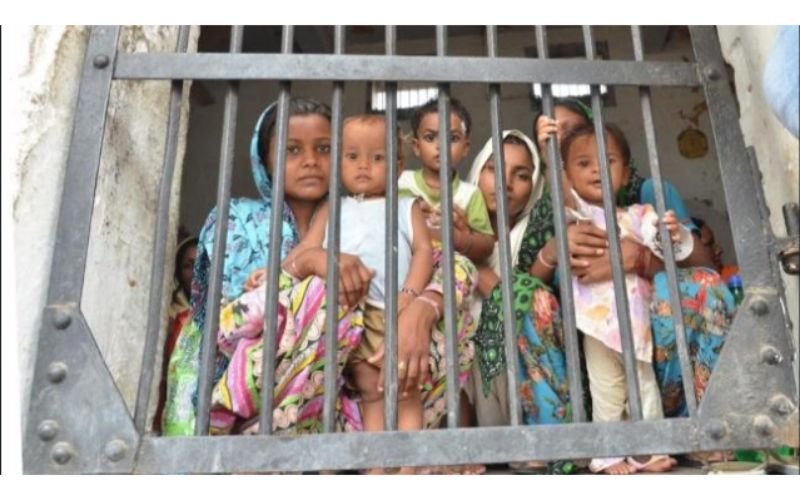Indian prisons make news when there is a jail break, a prison riot or when the lawyers of high-profile businessmen or economic evaders fight against their extradition to India. However, this edition of the article is different from its earlier versions, for it neither talks about a dark and dingy cell with a steel bowl and a worn-out grey blanket nor does it mention the sticky nasty food or the constant terror of being killed by other inmates. In fact, it is out and out opposite to the concept of Jail which we have seen in television shows, films or news.

This jail named Devi Ahilyabai Open Colony in Indore has opened its doors for the families of the prisoners to cohabit with them. Offering the prisoners a fresh chance at life, the district jail in Indore, Madhya Pradesh has decided to do away with the dingy, dark cells and the overpowering sense of despair; by offering an open prison in Indore where convicted prisoners live with their families and can step outside the prison’s premises for work.
The main aim behind the commencement of this prison is that often people commit serious crimes in a rage, without meaning to do so! When they’re clubbed with other hardened criminals, this category of feeble inmates usually develop a negative outlook, resulting in rebels and deaths. To provide social restoration, this facility nudges these offenders to find a meaning in their lives.

However, this opportunity is not for all the law-breakers. Convicts who display ethical conduct during their term, get a chance to experience this. “The prison inmates who have maintained a clean disciplinarian record in their jail term and have only one or two years left of their sentence are eligible for this scheme. They are also entitled to parole release,” explains Mr Brajesh Makhwan, Assistant Jail Superintendent of Indore Jail. Presently, 10 prison inmates have been selected to avail this facility. As a safety measure, the guards of the prison keep a full record of the activities of the residents and of all their visitors.
There is a two-room home and independent apartments with security guards around for the safety! The inhabitants are allowed to move freely 8 am onwards and are required to return by 6 pm, although breaching the city limits isn’t permitted!
Other than these facilities, the jail also secured employment for the convicts. “The officials understand that when the tag of a convict is labelled to a person, it becomes difficult for them to get a job after they are finally released,mainly because society is not ready to accept them with open arms. In order to help them secure a decent livelihood, the Madhya Pradesh government has put forward this noble initiative of open jails, starting with Hoshangabad prison in 2010, followed by Satna, Indore and Sagar jails. With the help of NGOs, the officials also help these prisoners to get secure employment in the mainstream society, according to their individual skills. This enables them to earn for running the family. Two prison inmates have been appointed as drivers in a travel agency. One of the prisoners has planned to start a kiosk for selling tea, snacks and jalebis in and around the jail premises.”, elaborates Mr Makhwan.

The prisoners are really elated with this move and one Bhupendra Singh who was arrested with the charge of murdering a youth in a fit of rage says, ‘“I still have to spend some more time in prison. But since I have come to this open jail, I feel I have been released. I regret what I did and now I want to live a normal life.’ Singh has lived out his life imprisonment sentence in a number of prisons, until he was transferred to Indore Jail, where now he has been selected as one of the beneficiaries to enjoy the sweet taste of freedom. His kids will soon start attending a local school, while Singh is planning to run a tea and snack shack, with assistance from the prison officials. In Indore jail itself there are 9 more like Singh who has been chosen for this programme after a meticulous scrutiny process at the Bhopal prison headquarters.
Open prisons should be welcomed as they are excellent in providing rehabilitative justice and helps the convicts to re-socialize with the world before they’ve completed their sentence.


